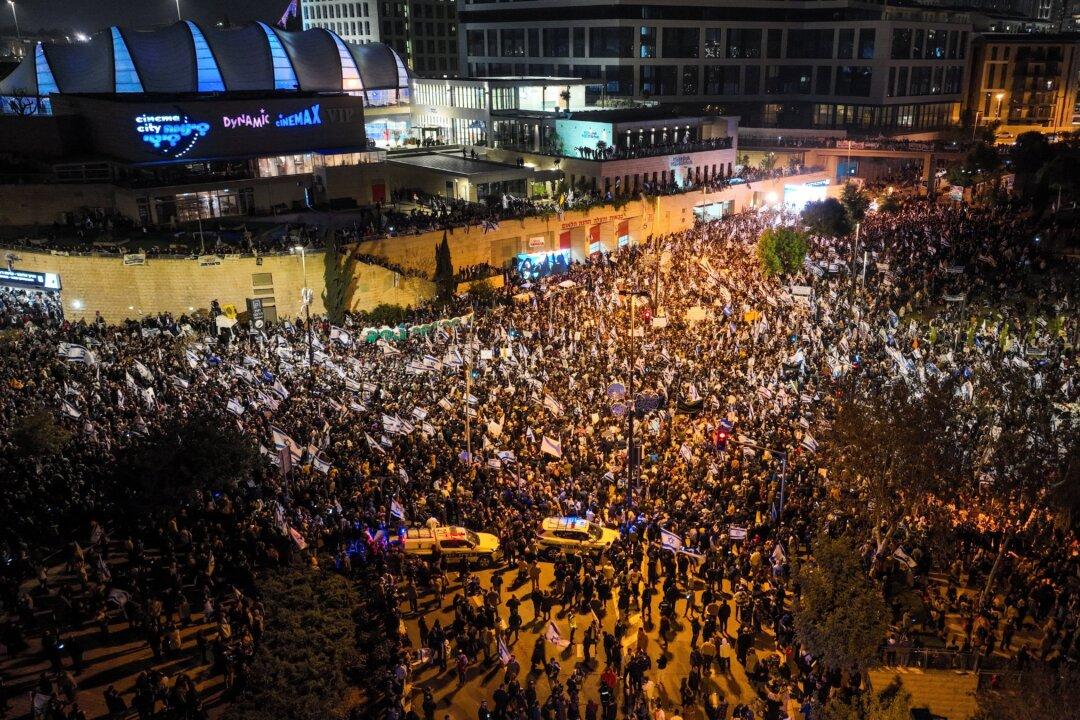JERUSALEM—Israeli Prime Minister Benjamin Netanyahu on March 27 delayed a decision on bitterly contested plans for a judicial overhaul to next month amid concern that Israel’s worst national crisis in years could fracture his coalition or escalate into violence.
It isn’t known whether the bill’s delay, amid a wave of protests, will satisfy either side or cool a crisis that the army chief on March 27 said made “this hour different to any before.”





